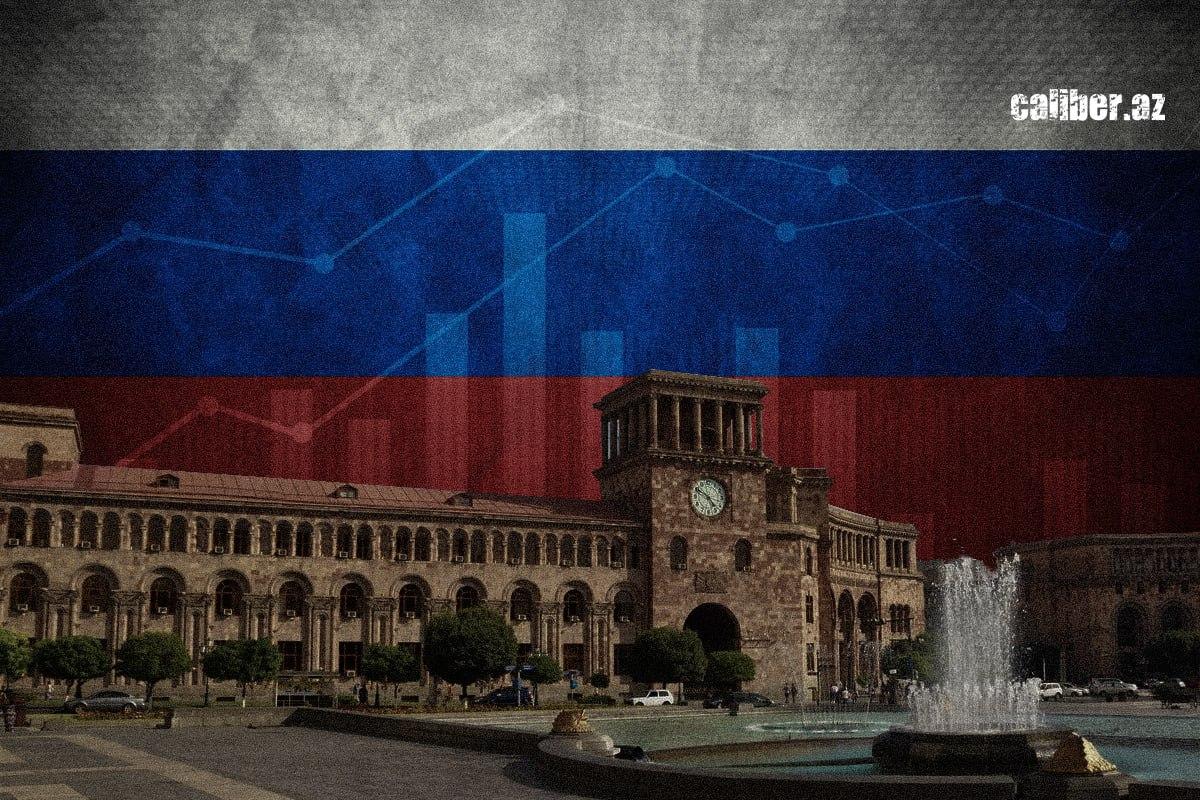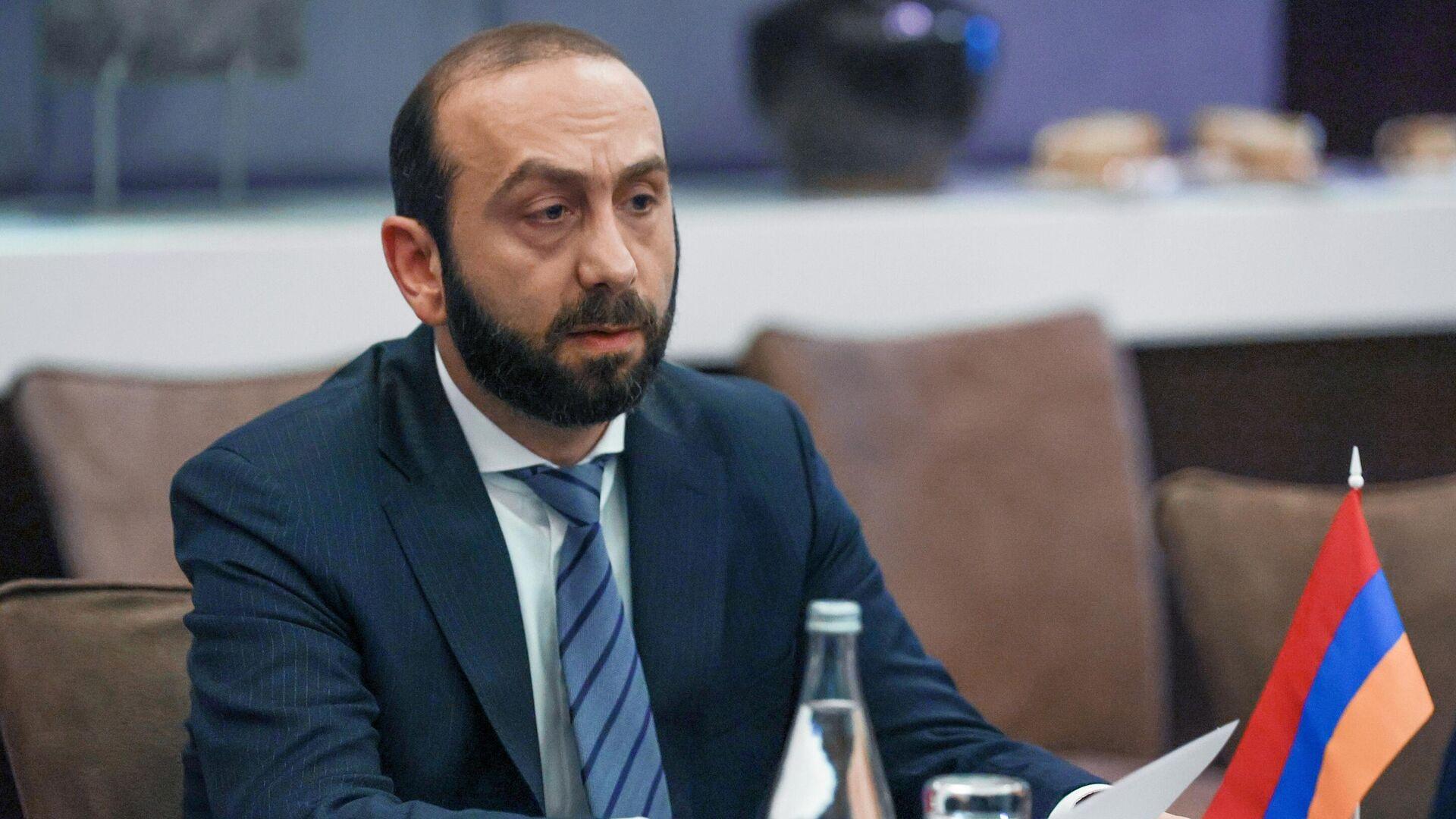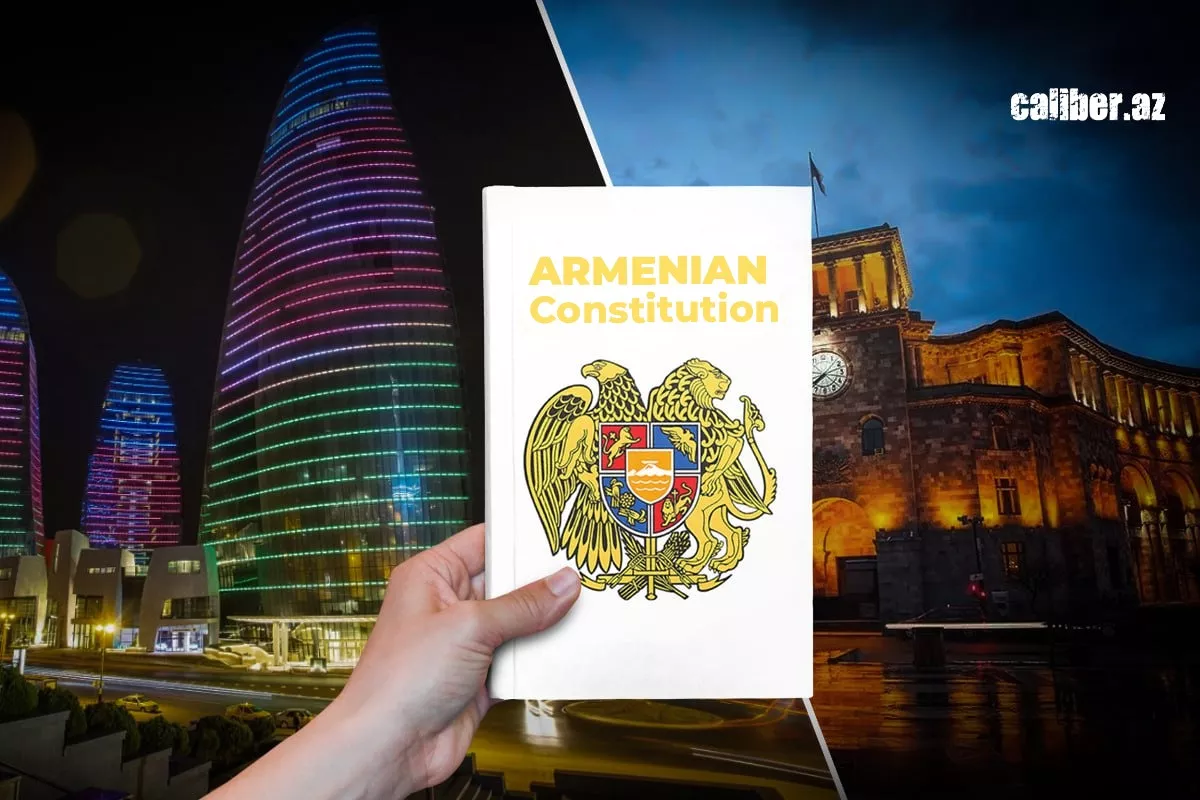Armenian foreign minister discusses foreign and domestic affairs Dodges clarity on peace talks
Armenian Foreign Minister Ararat Mirzoyan recently gave an interview to the Finnish news agency Lännen Media, during which he discussed various aspects of Armenia's policies.
Part of the conversation focused on Armenian-Russian relations, with perhaps the most striking moment being Mirzoyan's admission that Moscow had never requested Yerevan's involvement in military actions in Ukraine. This statement came in response to a question about whether Armenia faced pressure due to its military alliance with Russia as part of the Collective Security Treaty Organization (CSTO).
When asked about Armenia's role in the CSTO, Mirzoyan noted that while the country remains a formal member of the organization, it has suspended its participation in its activities. He then launched into familiar grievances, criticizing the bloc for its "indifferent attitude” to Armenia's problems."
While Mirzoyan’s remarks offered little new insight, it is clear that neither criticism of the CSTO nor a suspension of Armenia’s activities within the bloc would significantly diminish Russia’s influence in the country. This influence is rooted more in bilateral agreements between Yerevan and Moscow, including plans to boost trade turnover to $14–16 billion by the end of the year.

In addition, the Armenian Foreign Minister emphasized that Yerevan is now pursuing an "ambitious cooperation agenda" with Finland and the European Union. Negotiations are already underway on a document titled the New Partnership Agenda. According to Mirzoyan, this initiative will encompass various areas of collaboration. There is good reason to suspect that the program will include a significant military component.
It is worth noting that Armenia and France recently signed a defense cooperation program for 2025. Overall, Armenia’s military engagement with the West undoubtedly adds tension to the ongoing competition among major powers in the realm of defense and security in the region. However, Moscow has so far maintained a stoic calm, refraining from issuing sharp statements or taking decisive actions.
In this context, the following verbose passage from the interview raises interest due to its ambiguity: “At the moment, we are focused on strengthening the security, sovereignty, and territorial integrity of our country. On the other hand, we are focused on the prosperity, continued modernization, and democratization of our country. And this naturally brings us closer to Europe and similar value choices as yours.
At the same time, with all due respect to procedures and rules, perhaps it is time to act differently from the ‘business as usual’ mode. This might be true both for geopolitical decisions and for internally significant decisions. The world is changing. Perhaps it is time for bold political decisions.”
This statement, as they say, invites a deeper explanation. First, it could hint at certain decisions related to European integration. However, let's be realistic—key decisions about EU integration are made not in Yerevan but in Brussels, and it’s evident that the EU itself is in no hurry to welcome new members. Alternatively, could this be pointing to some process not directly tied to the EU but rather situated within the framework of Armenia's bilateral relations with European countries?
What about the “internally significant decisions” Mirzoyan alluded to? Could it be that, inspired (or perhaps misguided) by the example of South Korea’s president, Armenia’s prime minister is considering implementing a special regime, such as martial law? And if so, what could be the reason? Is it possible that the competition among external forces has reached a level where Armenian society is being prepared for various extraordinary scenarios?
As always, time will tell.
Another part of the interview was dedicated to the Armenia-Azerbaijan peace process. Here too, Mirzoyan mostly reiterated statements he had made not long ago. He claimed that Armenia and Azerbaijan are closer than ever to signing a peace agreement.
"Overall, we have a border, and we know where it is. It is based on the 1991 Alma-Ata Declaration, signed by the former Soviet Republics, which transformed administrative borders into state borders. Of course, the commissions of the two countries must work together on further delimitation and precise demarcation. The demarcation of the border is a guarantee of future stability," the Armenian minister stated.

Addressing the issue of opening communication routes, Mirzoyan expressed optimism that Armenia and Azerbaijan could reach mutually acceptable solutions.
"We can organize the passage of Armenian goods through Azerbaijan and the passage of Azerbaijani products through Armenia. In the first phase, we can restart rail transit and expand it gradually," Mirzoyan stated.
However, this appears to be more wishful thinking than a reflection of reality, as Baku has repeatedly emphasized that cooperation on communications is premature until Yerevan takes decisive steps—namely, removing territorial claims against Azerbaijan from the Armenian constitution.
Mirzoyan went on to claim that there is already agreement on 15 out of 17 articles of the peace agreement with Azerbaijan. Yet this raises questions. Previously, it was said there was consensus on 13 out of 16 points. While we might take Mirzoyan's words at face value, it’s worth remembering that Pashinyan’s team has a penchant for manipulating figures. The key issue here remains unchanged: the unresolved points are the most critical, as they include Baku’s demand for Armenia to amend its constitution to renounce territorial claims against Azerbaijan.

Continuing to put on a brave face despite unfavorable circumstances, Mirzoyan made yet another (this time rather feeble) attempt to blame delays in the peace process on Azerbaijan:
"We now have 15 out of 17 articles agreed upon. I believe we could have finalized and signed the treaty even before the COP29 climate summit in Baku. Unfortunately, this did not happen, but we are now ready to do so in a relatively short time. One could say this is a moment of hope," he said.
The Armenian Foreign Minister further added:
"I would say we are very close. Despite the tragic past of our two states and societies, there is an opportunity to turn the page of hostility."
Turning the page is indeed crucial, and it aligns with Azerbaijan’s objectives. However, turning the page is not merely about signing a document—it means creating the necessary conditions for that signature to hold weight. Armenia, however, continues to avoid creating such conditions, as evidenced by its push for a diluted version of a peace treaty.
Overall, Mirzoyan's interview sheds little light on the actual status of the peace settlement. Diplomats often use words to obscure their true intentions, and perhaps Armenia simply has nothing substantive to offer regarding the peace agreement—particularly on the critical issue of constitutional amendments. This could explain the vagueness and ambiguity in the foreign minister’s responses.








